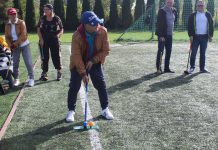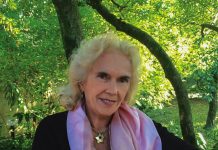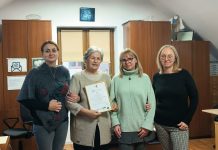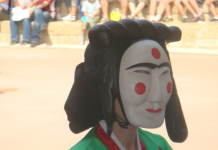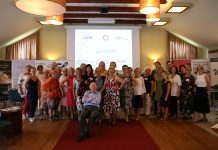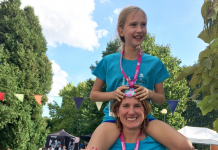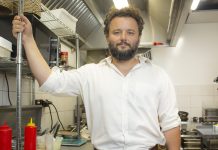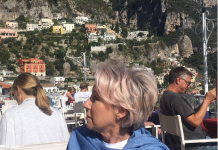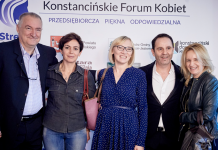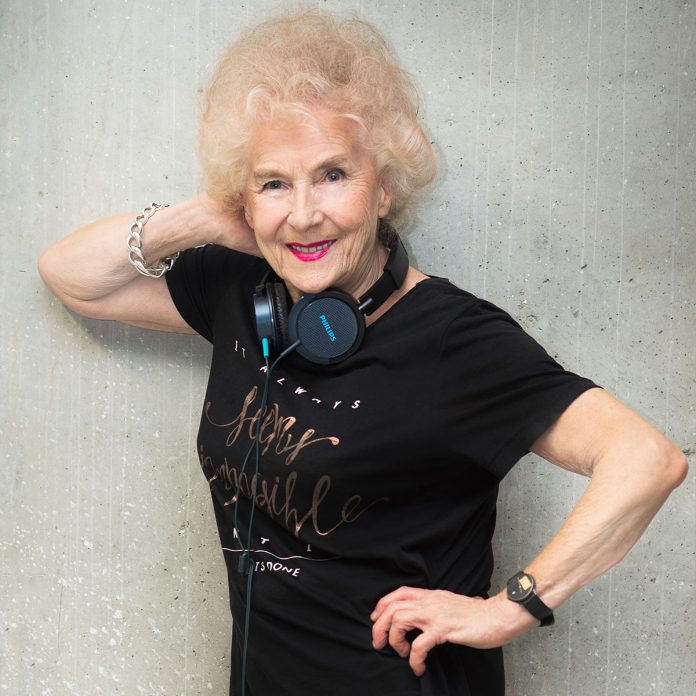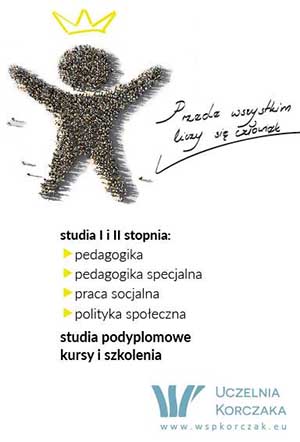Wirginia Szmyt, also known as DJ Wika, has been recognised not only in Poland, but also abroad for her social activity for elderly people. Raising her own sons has been really important in her life, she is also proud of her grandchildren. She finished studies as a special educationist – she was dedicated in her work to disabled children and troubled youth. After retiring, she actively joined groups for elderly people under the University of the Third Age, parades for senior people and other intergenerational events. She wrote poems and lyrics. She promotes the image of a happy senior person who lives feeling respect from others and dignity. She has received many awards, including the nomination to the Charismatic Woman award.
Childhood memories
– The period of war and early post-war years bring really hard memories to me. I vaguely remember the war, the smell of burnt bodies, air-raids and bombing, we were hiding to avoid being taken away. I remember I was sitting somewhere on the furnace, dirty from smoke-black and pretended to be mute – she recalls trembling.
Wirginia Szmyt was born in Vilnius in 1938 – she comes from Eastern Borderlands … from the family where honesty, being yourself and living close to nature has been the most important. What she remembers is the restless time … She lived there with her mother 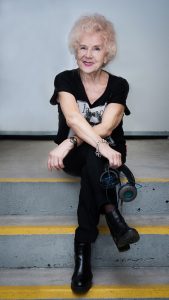 alone. Her father had to be in hiding. Most probably he was one of the cursed soldiers. – We lived in the fear of being sent to Siberia. Finally, we had to leave everything, all property, the house, friends and run away – she recalls contemplatively. After a month of hard journey in animal wagons, they arrived to Poland, to Toruń. They got a flat, and soon the father was found.
alone. Her father had to be in hiding. Most probably he was one of the cursed soldiers. – We lived in the fear of being sent to Siberia. Finally, we had to leave everything, all property, the house, friends and run away – she recalls contemplatively. After a month of hard journey in animal wagons, they arrived to Poland, to Toruń. They got a flat, and soon the father was found.
However, things happening in Poland at that time were far from the picture of a perfect childhood. There was high poverty and continual danger. Also from the side of compatriots. It was the time when some of them came from the East to avoid being taken away to Siberia, and here in Poland other people had to leave their houses and go to the West, leaving all their property. It was sad and dramatic. – We lived for a few weeks with a family from whom we got the flat and we made friends, because they were in the same situation as we were. They left their house to us, it was nicely decorated, and they left with suitcases to live a new life. – says Wirginia. – I remember that some people speaking Polish language came at night. They put us under the wall, they shot over my head. I peed because I was afraid. They stole everything we had. They said we were Russians, not Polish. Such robberies were very common at that time.
She often got ill and spent a lot of time at hospital because of stress and hard living conditions. Her father changed jobs all the time and the place of living. He graduated from agronomy at the Univeristy in Vilnius. In the beginning he worked at the Pilots School, then at the state collective farm. He was offered the position of the mayor of Sławno town, but he didn’t take it. – He was an idealist and when someone tried to tell him how he should work, he packed things and we left to look for luck elsewhere. I had a life of gypsy. This was hard for me. – she admits. Her mother said that she swore to her husband, so she had to go everywhere with him. Therefore, Wirginia changed schools all the time, and when she was 13 she went to live at a boarding school. – I was there without parents, and also I was the youngest one. It affected me a lot. I didn’t have an easy childhood. I had to „be a grown-up”. And I was like this for many years. – she says. She didn’t understand her mother’s devotion. She decided not to be such a woman, because she didn’t want to be a sufferer.
Setting up the family early, and the need for stability
She fell in love already in the first year of pedagogy studies, with a lecturer 10 years older than her. He was an authority to her. She got married very quickly. – From the present point of view, I think that if I hadn’t desired to have a sheltered home so much, perhaps I wouldn’t have entered such a serious relations so quickly – she notices. – I had had uneasy life before, so I subconciously aimed at stability.
She lacked a male role model, her father was like the second child of her mother, he couldn’t give them the feeling of security. Her husband impressed her much in the beginning as a psychologist and researcher having great knowledge, but it soon became clear that knowledge was more theoretical. She had to be a practical pedagogist and involved mother. However, thanks to her husband she got some experience and learnt real life.
She has two sons and until they reached maturity, she earned the living for them. After work, she rushed home where she had another job, she had to take care of everything on her own because her husband spent many hours at the univeristy and obtained more and more academic titles, first in Poznań, and later in Warsaw, where they moved. – I was worried whether I would manage all duties related to my sons upbringing, but I really wanted them to be happy – and I think I managed. – she recalls. – I taught them to be self-reliant and I was careful about choosing the teaching methods. She never pushed anything to the Edge, she didn’t give orders. – I talked to them about love, about being careful because their actions had consequences. I explained that pleasure doesn’t last long, and consequences are long-term. – she says. She knew they studied together with their girlfriends, that they went to the cinema, camping, to concerts in Jarocin. She reminded them to keep cool mind not to waste life easily.
Now she is proud that they became independent men. They earned money for their flats, they got married and they have wonderful families – the ones she always wanted to have – they have great relations with children and their marriages are full of love. She has become a grandmother of four already grown-up grandchildren. They also have passions. One of the sons with his wife dance tango milonga, they go to events and tournaments around all Poland, as amateurs and fans of that dance. – This is a beautiful passion which brings a lot of joy into their life and it is a getaway from everyday duties, because they take care of the daughter who suffers from epilepsy. – says Wirginia and she feels sorry that the girl has a more difficult contact with other children. The girls from her class didn’t want to sit at one bench with her. She is not mentally ill so she can’t go to a special school. She can’t study graphic design either, which is her dream, beacuse her mind doesn’t work well enough due to the illness and medicines. Besides, she suffers from depression. Wirginia Szmyt thinks there are no suitable conditions to live for such children and young people in this country.
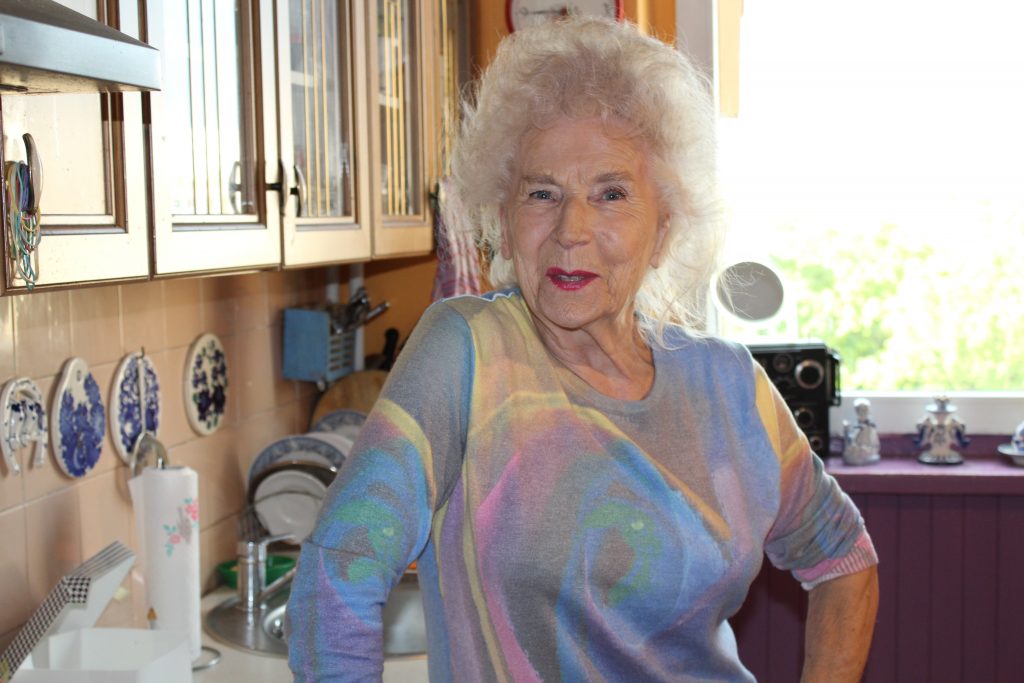
Working with disabled children
She always wanted to work with troubled youth. She graduated from special pedagogy studies, and first she worked as a teacher at special school for children with multi-disabilities. She spent four years there. She found out that job wasn’t for her.
– After work I went to a different world which I enjoyed. At work I looked at deformations, deformed people. It was hard for me to take it out – She wholeheartedly supports the parents of disabled children. She thinks that in Poland there is no tradition to treat such children with respect. A house with a disabled child is treated as a sick house. People can’t understand that. In the country such a house is passed by as if it was leprous. We are already entering the civilised world. – We are already learning to respect the disabled and other lost people. Unfortunately, it is late, but it is good they have been noticed and the facilities and care for them have been slowly developed and include a wider scope, not only material things, but also education and professional treatment – she emphasizes. She is happy that others start realizing that such families should be supported and the society should be educated so that disabled people and their families were treated with due respect. Wirginia Szmyt clearly stresses that schools for children with special needs should also be developed as well as job places for disabled people to provide them with opportunity to learn how to live on their own, whenever it is possible.
At the youth detention center
She preferred to work at the youth detention center and she did, though it wasn’t easy. Her supervisor said he didn’t employ women. However, he agreed on a two-week trial period, and after 3 years she became the center manager in Warsaw and she worked there for 15 years, going through all career levels. She ended her career at the position of director at that center and this was the first success in her professional life.
– Most of all you need to realize what kind of people come to such detention centers. These are people from pathological families, who steal, rob. They often get convicted for rapes, taking drugs or thefts. Next to them, there are sensitive persons who just run away from school. They are all put in one bag – she notices. – This a different, closed world. They have their own rules, their language and reality. She had to get to know all that, understand, get inside this specific environment. Very often she had to slap them and she had to learn that. It was tough in the beginning, but she focused on honesty. – I told my juveniles that I could improve their lives, that I could help them reach their dreams, so that they could start their lives again and not only spend them at the detention centers or prisons later. I could find a job somewhere else, no problem, but I wanted to do something to improve conditions at that center – she recalls. – It worked!
Was she afraid of them? Of course she was, but she was even more afraid she would not manage the whole job, and they would dismiss her, because she would not handle it all. Once she did an experiment. She went away with the worse recidivists to the seaside, only her and the group. They could rape her, kill, everything could happen. The first night already, the boys ran away from the camp. In the morning they came back, and later the police arrived with the message that they robbed a shop. She told them to give back the goods and she promised to the policemen it would not happen again. They listened to her. – Risk sometimes allows to make a good relations, to win trust, but it can be opposite as well. – she says. – I believed this could work.
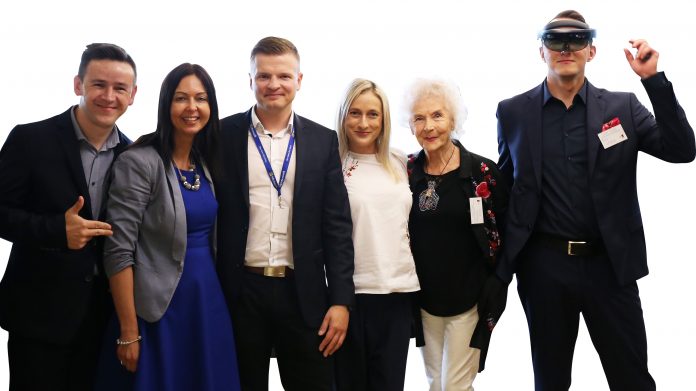
It was hard for those young people to get back to normal life after leaving the detention center. They often didn’t have a place to go back to. A mother alcoholic, no home, no care, no support. Joining the army was usually a solution, which provided care, but also set rules and goals. Many of them chose to be professional drivers. The world which they returned to surely wasn’t friendly. Probably not all of them managed to change their lives. Many of them ended up in prison, many became jobless, but there were also others who chose to live in a different way, and they work fairly. It depends on the backbone, strength, willingness. Temptations are plenty out there.
Music and acting for the senior people
When about 30 years ago she retired, she began working for the sake of elderly people. – I was offered to lead activation of retired people at the Retirement Home in Ochota. I agreed and worked one year there. Then I moved to the Ikar hall at the Okęcie airport, where I set up a club of 350 members – she says. – We acted very dynamically. We had thematic meetings, we had a Viagra cabaret, it was funny and we had dance evenings, and dedicated music groups. She worked 5 years there until 1999. She received many awards, including the award for the Person Committed to Doing Good.
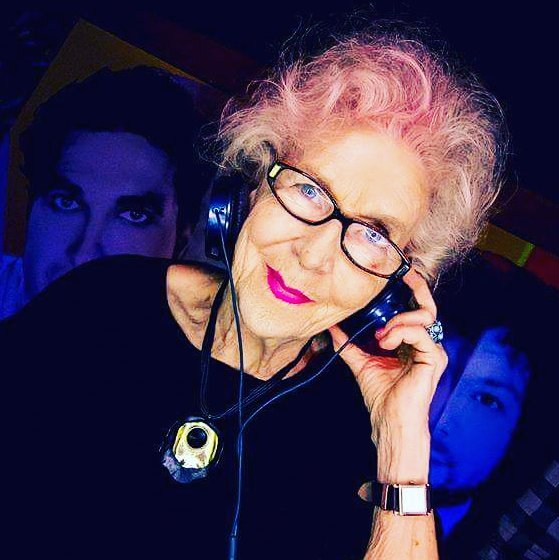
Later, she moved to the foundation supporting artistic creativity among elderly people. She wrote a project about promoting literary activity of various nationalities living in the capital city. This way she initiated the evenings of Jewish poetry, Vietnamese, Georgian, Russian and Polish poetry. She also ran the literary saloon in Wilanowska street for 4 years. Next, she started her adventure with music as a DJ, which she has been doing until this day. Young people helped her to know the technical details. Every Monday she plays at Hulakula Club.
–The musical tradition has been in my family for ages. My grandfather played all instruments, he had balalikas, piano, violin, guitars. My mother’s sister was an actress and a dancer. I learned to play the piano, although not very willingly in the difficult childhood time – she says with nostalgia. She plays almost every kind of music, but she prefers retro, but it depends on the party type. She is invited to many events in Poland and abroad. She has dj-ed in Moscow, London, Budapest, Berlin and Paris. In Poland she plays at many parties for the elderly and the disabled. Recently she has played music during a festive party in Nowa Sól, where one of her sons lives, she also took part in the conference organized at Microsoft Polska concerning the Revolutions in innovations and interfusion of modernity with tradition.
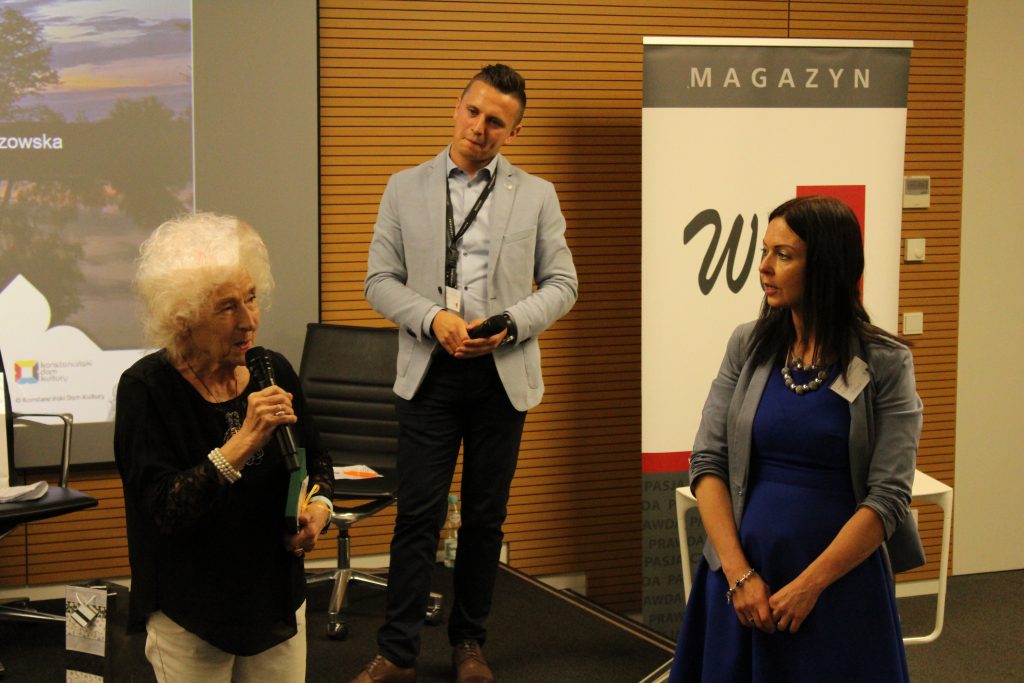
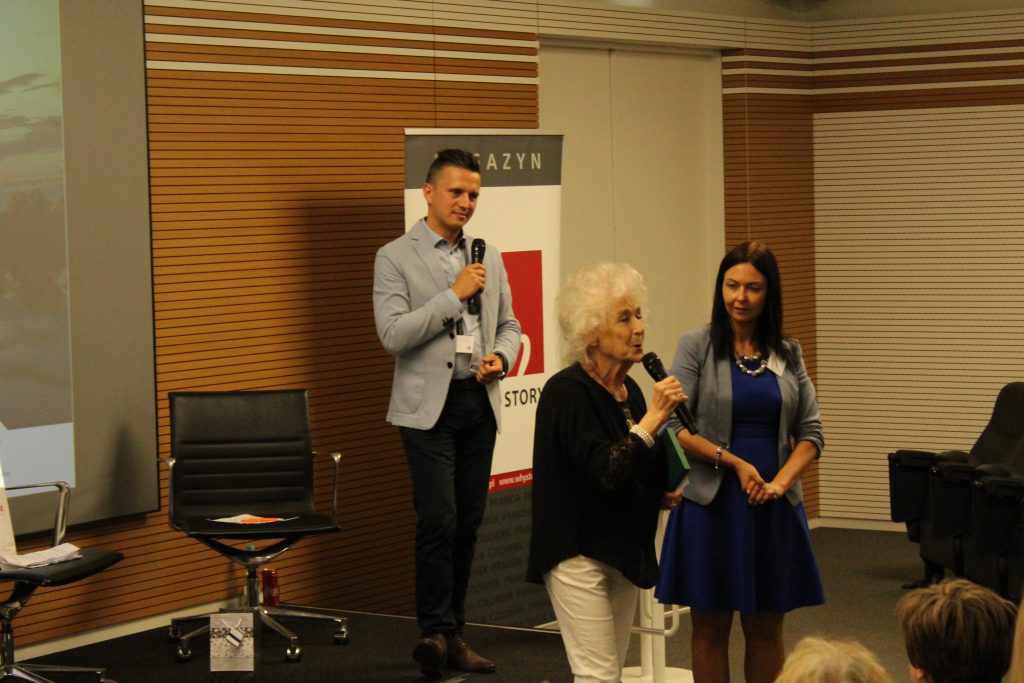
At the parties she hosts, she tries to join generations, she wants people to have good fun and tolerate one another. She tries to do as much as possible for the elderly people. – Music creates opportunities for people to get to know each other, it erases the barriers, it teaches, it gives to people joy and movement, which is good for health, it sometimes calms down like when mothers sing lullabies to children – she stresses. – It is with us since we are born until the last days…
Wirginia Szmyt wants to promote the image of a senior person actively involved in public life. – I would like everyone leave our homes, and not get closed in them. I would like a senior person to be able to act in public life next to other social groups, to be noticable and not treated as the unavoidable nuisance. – she says openly. – Old age cannot be shameful, the world cannot be dominated by the youth and beauty. She claims a balance must be kept because old age has its advantages, i.e. wisdom, experience, ability to handle problems. She emphasizes that if we are shamed of old age, we won’t raise future generations in respect to life, parents and grandparents, and also to ourselves, because youth is not given for whole life. – We get mature long, so we should take care of every age group and promote respect for wise old age – she persuades. – Why there are only young girls acting in commercials – they will also change. I am more convinced about products advertised by senior people, because they are more credible.
Advantages of being alone
Wirginia is not afraid of being alone. Actually, she appreciates it, especially when she comes back tired after concerts. – I like company of other people, but I also value being on my own – Wirginia admits. – Sometimes I have to think over certain things, „digest” whether it is acceptable for me to do something or not, because I get so many proposals of performing. I wouldn’t like to seem theatrical, I want to be myself and I follow my own intuition.
DJ Wika doesn’t want to use support of political authorities, acknowledged pscyhologists or scientists – she prefers to follow her own intuition and consult herself, and for that she needs a moment to be alone from time to time, she needs time on her own to sort things out, to clear her mind and the space around her. She doesn’t like living and working in a mess. She has to have it cleaned. Her work involves trips, sleeping away from home. She also has to take care of her cats and plants, so being alone is the time spent at home and dealing with everyday issues. It also includes reading, so being with herself. She has been in love twice, in two different ways. Both relations ended with marriages.
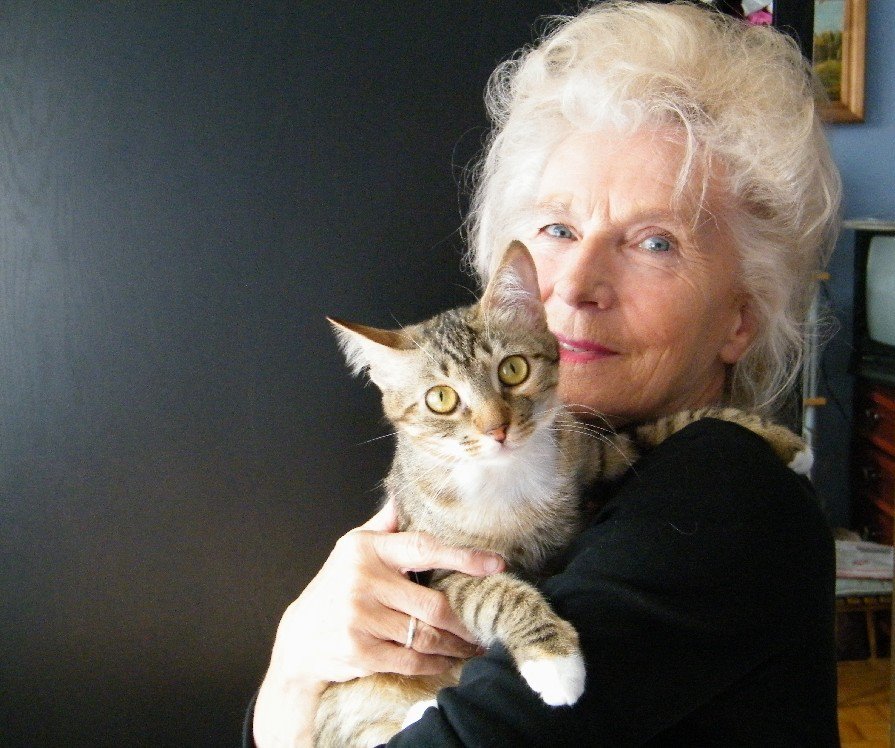
Men of her life
Her first husband won her heart, she thought that relation would last forever. She looked for intimacy like in romantic books. It took her a long time to decide about a divorce. She wanted to keep the marriage because of children. Unfortunately, there were too many differences between them. Her husband focused on work, on getting new degrees: PhD, tenure, professorship. She didn’t regret getting divorced, and she didn’t suffer. She moved out of their home and went to live in a company apartment. She says when things don’t work, there is no sense keeping them go on.
She thinks that if a woman lives with someone, she wants to know that there is a feeling between them and that she is the one. Only then you have the desire to create things together. The second marriage gave her that kind of love, which if she hadn’t experienced, she might have been looking for it. It gave her great strength. – A relationship may stifle or uplift a woman. A man may dominate us, bring fear into our life that we won’t live up to his expectations – she notices. – In the second relationship I decided not to change, to be who I am.
She met her second husband in Belweder while drinking a glass of wine. He was interested in what she was doing. He couldn’t understand how such a fragile and adorable woman deals with young criminals. He was intrigued and this was how it began … He impressed her with his relaxed way of being, eloquence. As a diplomat, he was a cosmopolitan man, and handsome with a beautiful smile. She decided knowingly to live that adventure. – I was leaving my husband, I was finally free. I thought to myself: I am so decent, I could have fun at least once – she says openly. – And that adventure turned into a true love. One could not live with me, and the other without me. With the second husband we lived 30 years together. I saw in his eyes love, fascination, warmth. This all enchanted me for all my life.
Staying fit
Since her beloved husband’s death, she has lived alone, so she takes care of heatlh much. She used to do artistic gymnastics. Now she does exercises at home on a bar, she also does bends, squats and pumps, every day! Although not with the same determination as when her husband lived and was her audience.
She tries not to eat too much, thanks to which she stays slim. – I used to like gormandize, there was always a cake with a coffee. I also liked sliced meats, but sweets are important to me and it is hard to resign from them – I have my favourite pastry shops and sometimes I indulge myself, but … without lunch and dinner then – she admits. With the time I realized how much suffering is done to animals, and I am a great animals lover, so I occasionally buy meat. Besides, it used to taste better. She has a cat-tester which doesn’t even touch most kinds of sliced meats. Sometimes she eats more, after coming back from a night party. Then she completes the lost calories.
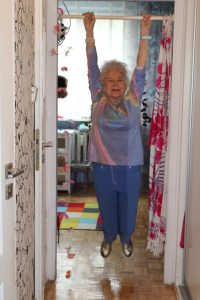
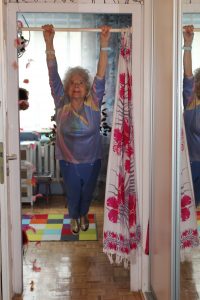
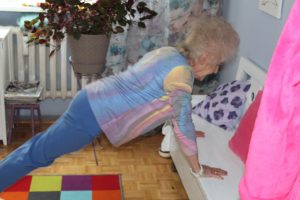
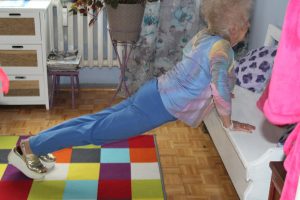
The future
She wants to stay healthy and self-reliant as long as possible. She would like to travel, but now she has no company. She initiated holidays for senior people for the so called one penny. She goes there once every season, while in the past she went even three times per season. She is too busy. – I am really lucky in my life, I do what I love. I love music, I 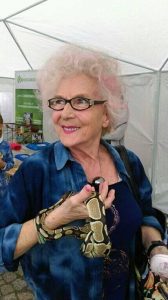 have a wonderful family – edcuated and independent sons who have great relations with their children, already grown up – she says smiling. – I am under their discreet care. They all work a lot, they can’t always meet together, but they call each other and in free time they care about family relations.
have a wonderful family – edcuated and independent sons who have great relations with their children, already grown up – she says smiling. – I am under their discreet care. They all work a lot, they can’t always meet together, but they call each other and in free time they care about family relations.
Wirginia is a social ambasador of Monar, the Senior’s Voice and the Disabled People in Bemowo. There is a lot of it in her active life, which she loves. She wants to keep promoting the joy of that gift which cannot be repeated. – Therefore, every day is a new challenge and every sunray is the joy that I can, I want , I feel needed and strong. How long it is going to last, this is hard to predict – she sums up and quotes the song lyrics: “Now love your life even in rain, when you stand alone by the window. See how everything changes, and this is why it is worth to live, to love, to dream. The rest time will show, time will give the sign when to rest … “.
Beata Sekuła








